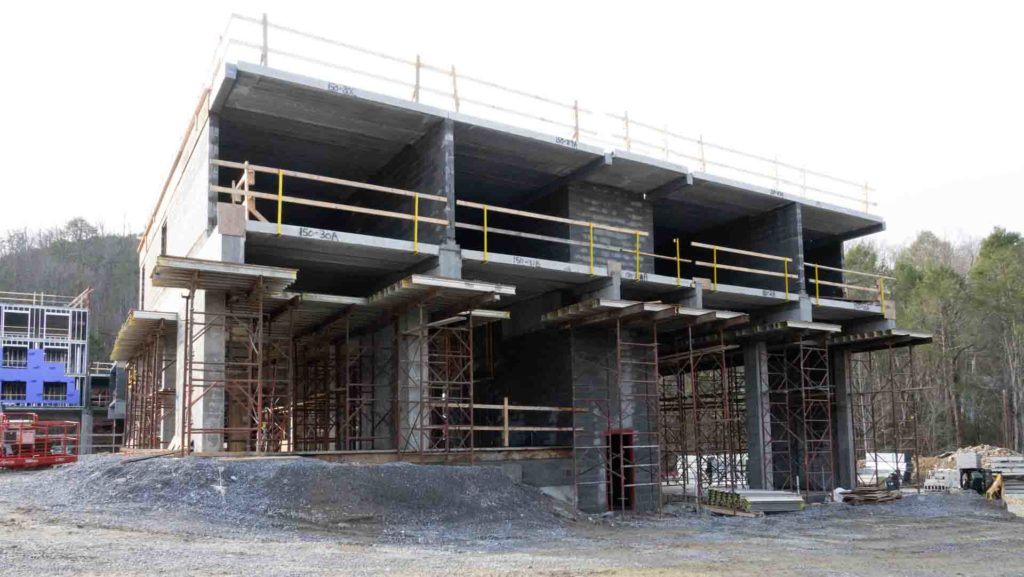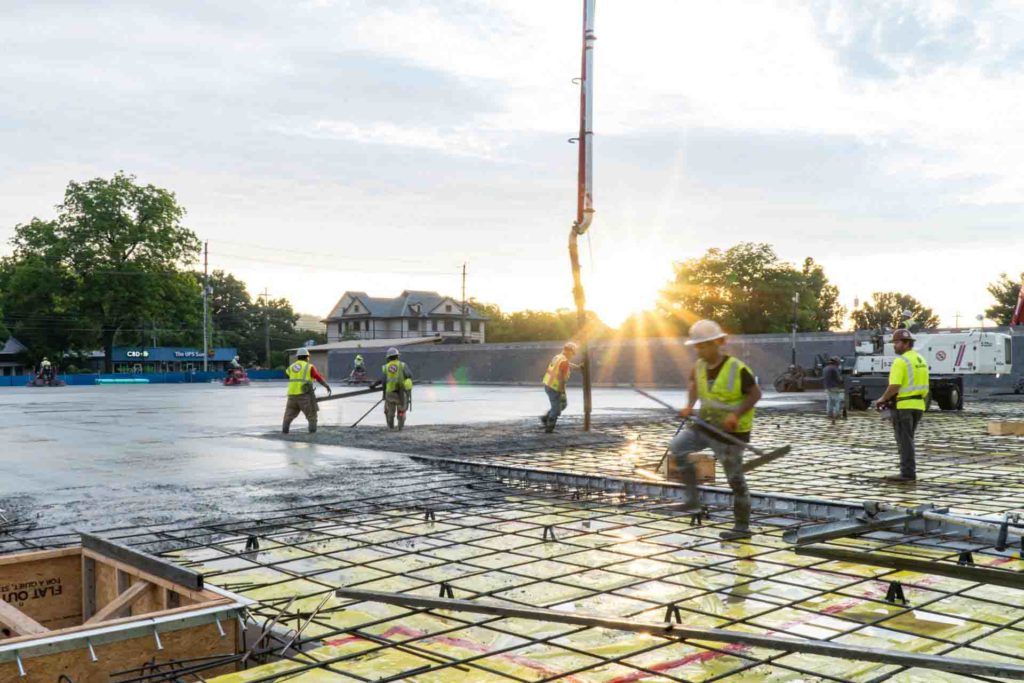When it comes to concrete slabs, the common wisdom often leans towards “thicker is better.” While a certain thickness is undoubtedly necessary for strength and stability, the team at Sensible Concrete Works knows that the answer to “Can a concrete slab be too thick?” isn’t a simple yes or no. Let’s delve into the considerations that go beyond just adding more concrete.
The Benefits of Adequate Thickness:
First, it’s important to acknowledge why proper thickness is crucial. A well-designed concrete slab provides:
- Load-bearing capacity: Sufficient thickness allows the slab to support intended loads, whether it’s foot traffic in a home or heavy machinery in a warehouse.
- Durability: A thicker slab is generally more resistant to cracking, especially under stress or from ground movement.
- Longevity: When properly designed and poured, a concrete slab of adequate thickness can last for decades.
So, Where Can “Too Thick” Become an Issue?
While the advantages of sufficient thickness are clear, there are situations where an excessively thick slab can present drawbacks:
- Increased Cost: More concrete means higher material costs. This includes the concrete itself, as well as potential increases in labor for placement and finishing.
- Extended Curing Time: Thicker slabs take longer to cure completely. This can delay subsequent construction phases and potentially increase the risk of surface issues if not managed carefully. As Sensible Concrete Works emphasizes, proper curing is vital regardless of thickness, but it becomes a longer-term commitment with larger volumes.
- Potential for Temperature Differentials: During the curing process, the core of a very thick slab can retain heat longer than the surface. This temperature differential can lead to internal stresses and potentially cracking if not properly addressed in the mix design and curing plan.
- Unnecessary Weight: In some applications, excessive thickness can add unnecessary weight to the overall structure, potentially impacting foundation design or requiring more robust supporting elements.
- Logistical Challenges: Transporting and placing large volumes of concrete for an overly thick slab can present logistical challenges on the job site.
The Sensible Approach: Design and Purpose Matter Most

At Sensible Concrete Works, we believe in a balanced and informed approach. The “ideal” thickness of a concrete slab isn’t arbitrary; it’s determined by several key factors:
- Intended Use and Load: A residential patio will have different load requirements than an industrial floor. Engineering calculations are essential to determine the minimum required thickness.
- Soil Conditions: The stability and load-bearing capacity of the underlying soil play a significant role in slab design.
- Reinforcement: The type and amount of reinforcement (like rebar or wire mesh) are crucial in distributing loads and can sometimes allow for a slightly thinner slab while maintaining strength.
- Building Codes and Regulations: Local building codes often specify minimum thickness requirements for various applications.
Our Expertise at Your Service:
Before any concrete is poured, Sensible Concrete Works takes the time to thoroughly assess the project requirements, including intended use, soil conditions, and structural loads. Our experienced team works with engineers and architects to determine the optimal slab thickness – one that provides the necessary strength, durability, and longevity without unnecessary costs or complications.
The Takeaway:
While erring on the side of caution with a slightly thicker slab might seem like a safe bet, “too thick” can indeed be a reality, leading to increased costs and potential complications. The key is a sensible, design-driven approach that considers all relevant factors.
Ready for a concrete solution that’s not just strong, but also smart and cost-effective? Contact Sensible Concrete Works today for a consultation on your next project!




